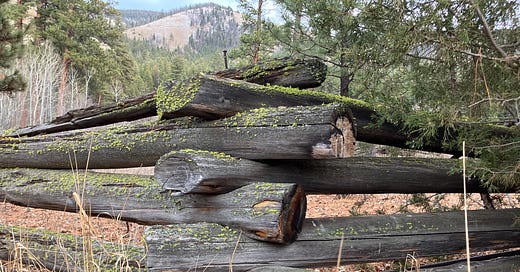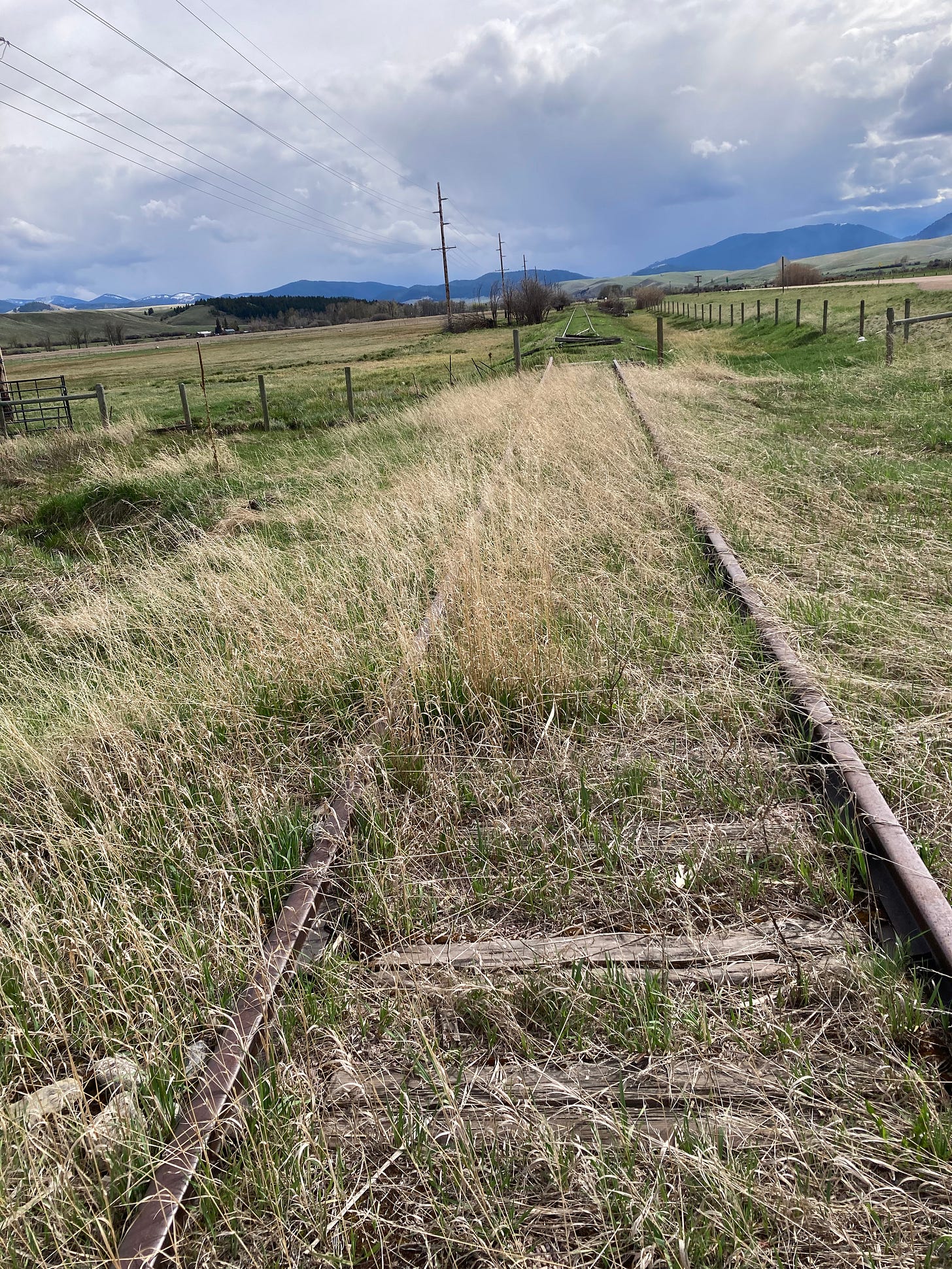When I launched this page last week, I was about to head off-grid to a Forest Service cabin, and didn’t quite realize the speed with which this new space would start to attract attention—as in mere minutes, once I linked it to Facebook. So I scrambled to come up with some fast yet suitable content, learned how to post it, and promptly drove out of both cell and web service, which by the way I highly, highly recommend.
Now that I’m back, I want to explore more directly why I decided to create this page, and what I hope to do with it going forward. And I really can’t do that without first noting the changes to publishing in general over the past decade, a span of time that happens to coincide with the wildly divergent outcomes of my two traditionally published novels, Painted Horses and Cloudmaker.
I wrote the first over a five-year-period while working as a carpenter, on the gamble that it might actually go the distance and become a legitimate success. It worked. I managed to land an agent about six months after achieving a full draft, and six months after that sold the book to Grove Atlantic, in many ways a legendary house with a number of historic free speech wins and a lot of equally legendary writers in its stable.
To my shock, Grove named the book its lead title for the publishing season, and backed it with a gargantuan publicity push. The cover art was used as the season’s catalog image, and I went along with the publisher to the American Bookseller’s Winter Institute in Seattle and Book Expo in New York City in advance of the launch. Along with the exposure came a slew of marketing plums—the Barnes and Noble Discover list, Amazon Spotlight placement, the lead pick for the Independent Booksellers’ Indies Next Great Read. Jacket blurbs from an outright Murderer’s Row of literary illuminati, most of whom didn’t know me from a skid mark on the side of the road. It was heady, to say the least, even though I’ll admit that I didn’t quite comprehend the true significance at the time.
The momentum kept right on building after the book launched in August, 2014, with a number of solid reviews in newspapers across the country, Boston to Salt Lake to San Francisco, and points in between. The scheduled five-city book tour expanded, and expanded again—by the time it all wrapped up in October of that year, I’d been to festivals and given readings in twenty-five different cities. Thanks to Grove’s marketing efforts, the novel earned back its advance in the first royalty period, which then resulted in a contract for a second book based on little more than a solid idea.
Looking back, the turning point for my own endeavors may well have originated on election night, 2016. I’d been invited to participate in a four-day event sponsored by the public library system in western Idaho, and I vividly remember reading in front of a packed house in Moscow as virtually every member of the audience stared at a smartphone screen, tracking the polling results. And looking back? I don’t think the great majority of the audience heard a word I said.
So if we jump forward a year, then two, then three, I can see now how the landscape was shapeshifting in ways that I simply didn’t perceive in any given moment. Politics began to dominate the cultural conversation, and the online universe began to subsume the old-guard media. Newspapers started downsizing, then often folding altogether. Twitter wars were erupting, and social media was driving formerly reasonable people into rage-driven factions. Meanwhile I turned in a full draft of Cloudmaker in January, 2018, right as #MeToo was hitting the afterburners, with half the book voiced in the character of a precocious—intellectually and otherwise—teenage girl.
In the literary world, people were “interrogating” issues that few if any had remotely considered before. Who, for example, gets to write from which identity group’s point of view? Who uses which alternate pronouns, and who seems bamboozled by the very notion of such? And maybe most critically, relative to my own trajectory, which groups—not individuals, but whole, lump sum, superficial identity groups— have historically sucked most of the oxygen and all of the money right out of the room, at the unfair expense of other, less privileged collectives?
The editing cycle for the new book dragged on. And on. One full year, then two. No real reason for it, except the can getting kicked down the road while one cultural skirmish flared after another. “Toxic masculinity” and “cultural appropriation” became trendy buzzwords, with little in the way of actual, definable context.
Brett Kavanaugh happened, and Woody Allen’s book got axed. The Shitty Media Men list landed on the publishing world like napalm on a retirement community. Charlie Rose got packed off in his smoldering undies. Garrison Keillor got deep-sixed on Lake Woebegone. Even Junot Diaz and Sherman Alexie were publicly flogged.
At the same time, traditional print newspapers and magazines were dropping like flies, including many of those that helped Painted Horses get into the black in the first place. The handful of remaining, big fish culture desks like the New York Times, Washington Post, and NPR seemed increasingly absorbed with trauma-centric narratives about racial and/or gender justice, as did the celebrity book clubs.
Straight white male writers were by this point basically absent from awards nominations, writing residencies, even regional book festivals, as boards and committees and panels tilted hard on the equity and diversity axis. And in the “literary fiction” publishing category as a whole, heroically competent, straight white male characters had for the most part gone out with, well, Painted Horses.
Meanwhile, with one half of Cloudmaker narrated by a proto-bohemian teenage girl, the other half came in the voice of a preternaturally capable boy engineering genius based on the real-life David Comstock, who built and flew his own airplane as a seventeen-year-old in Roundup, Montana, in 1933. So geez—what could go wrong?!
Well, for starters, one further fluke of historical timing—after two-plus years in a largely dormant editing cycle, Cloudmaker was finally greenlighted in March, 2020, literally one week before Covid shut down New York City. For most of the next year, the principal team shepherding the book through the production stage would mainly be working from home.
Call it a perfect storm, or just really piss-poor timing, but the outcome could not have been more different from what I’d experienced the first time around. We got a couple of good pre-publication reviews from book trade journals, and a scant pair of lovely jacket blurbs, again from writers who didn’t know me from anyone. Otherwise nobody was biting, or in many cases so much as dignifying the request with a return email.
By the time of the actual launch, a year to the week after the production greenlight, in-person readings and signings and live book events were still a far-off mirage down the scorching pandemic highway. Nearly all of the regional papers that had reviewed my first novel eight years earlier were either totally shuttered, or no longer reviewing books at all.
To cut to the chase, Cloudmaker pretty much crashed and burned on the runway, a very hard thing for this boy to watch.
But with time comes hindsight, and hindsight brings perspective. Two years and on from that sobering failure, I’ve come to see it like this: Painted Horses caught the very tail end of an era in which traditional marketing and publicity strategies still had relevance, and politics and ideology were less projectable, and certainly less of a minefield. Very soon afterward, that world was gone. Truth be told, if I hadn’t landed that first book when I did, but rather started to shop it around after November, 2016? I doubt even it would have sold to any New York publisher. Sobering, indeed.
I don’t intend this as a complaint, merely a reckoning, and an explanation for why I’m writing this now, in this particular space. For all the disorienting upheaval of the past few years, other opportunities have emerged, out of the same technological evolution that superseded the old media models in the first place. This is one of them.
Going forward, I don’t intend to dwell on politics or opinion or the “culture wars,” such as they are. I’d rather write about the things that send me down the rabbit holes of curiosity, and celebrate the weird gift of merely being alive. Although I’m mostly known for the novels at this point, I used to publish a fair amount of nonfiction as well, and that’s mainly what I’ll focus on here—basically, the stuff that previously would have appeared in a print magazine, be it an outdoor rag or a travel magazine or a regional lifestyle journal.
I haven’t monetized this yet, and am not totally sure when or in what form I will, although yes, at the end of the day, part of the motivation is financial. That said, to everyone who already reflexively plunked down some shekels to contribute to the cause? I’m honored, and I hope to have enough on here soon to justify your faith!
Back soon, with more…






Malcolm, as I'm spooling up a writing project, and watching people on social media go through the publishing process, everything about this resonates with me. I really appreciate your thoughts on the landscape shift that has happened. I've been contemplating self-publishing, even releasing chapters on a blog and/or podcast (a la Andy Weir) and either seeing what kind of traction that gets with a traditional publisher, or going the full self-published route. My biggest hesitation is that I know the value of teams, that I have a lot I could learn from others, if I can find the right "others" to hitch up with. I'm not afraid of rejection letters, but now that people have pulled back the curtain a bit, I'm afraid that the vast majority of the literary gatekeepers aren't literate, and are working on a totally different project than I am. I haven't finished this thought yet, but, that's the direction I'm looking at: Where can I find good people who will see something in the mediocre idea I'm working on and make it really great.
What a great explanation of your two different journeys. I worry that a lot of great writing is being overlooked. I wish we could avoid pendulum swings and just aim for the middle of the road!